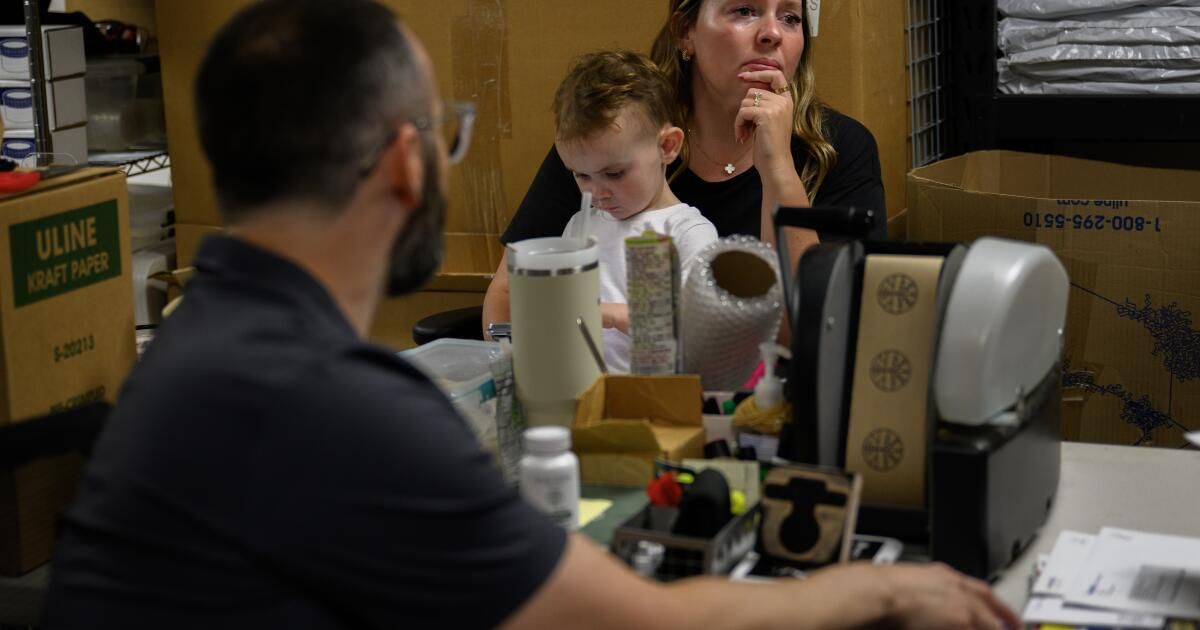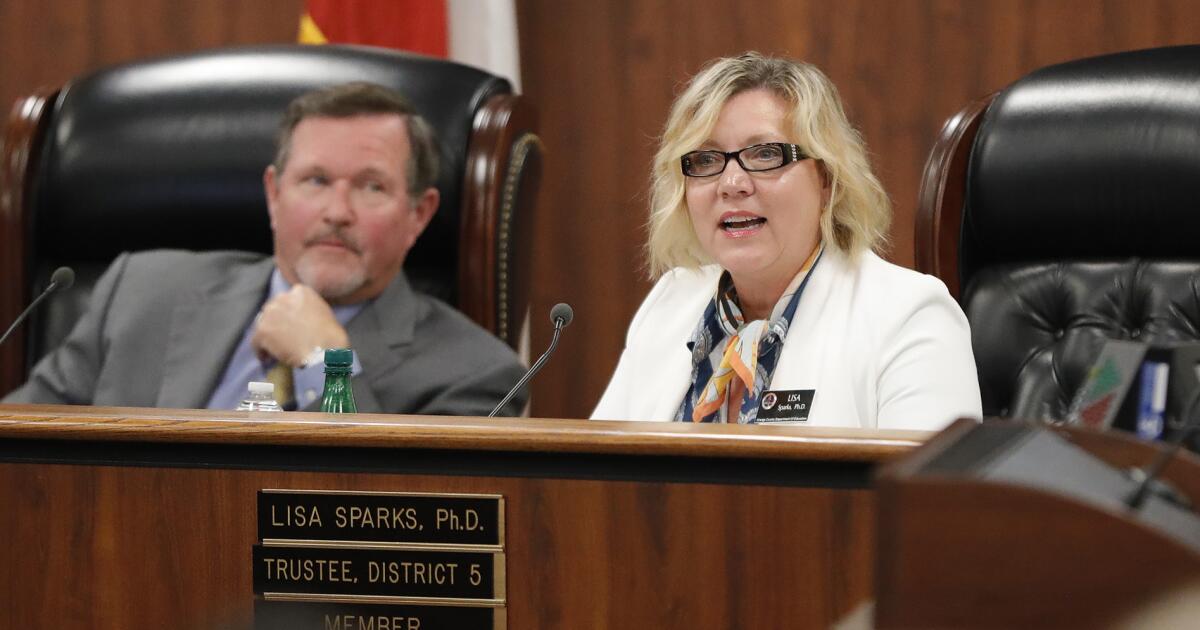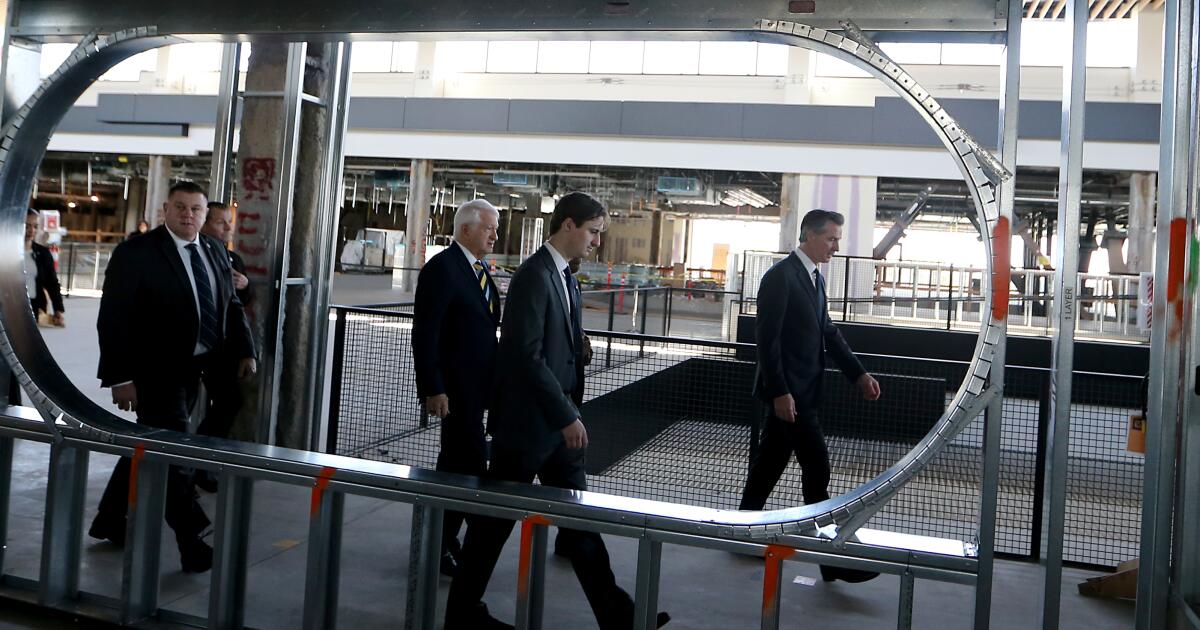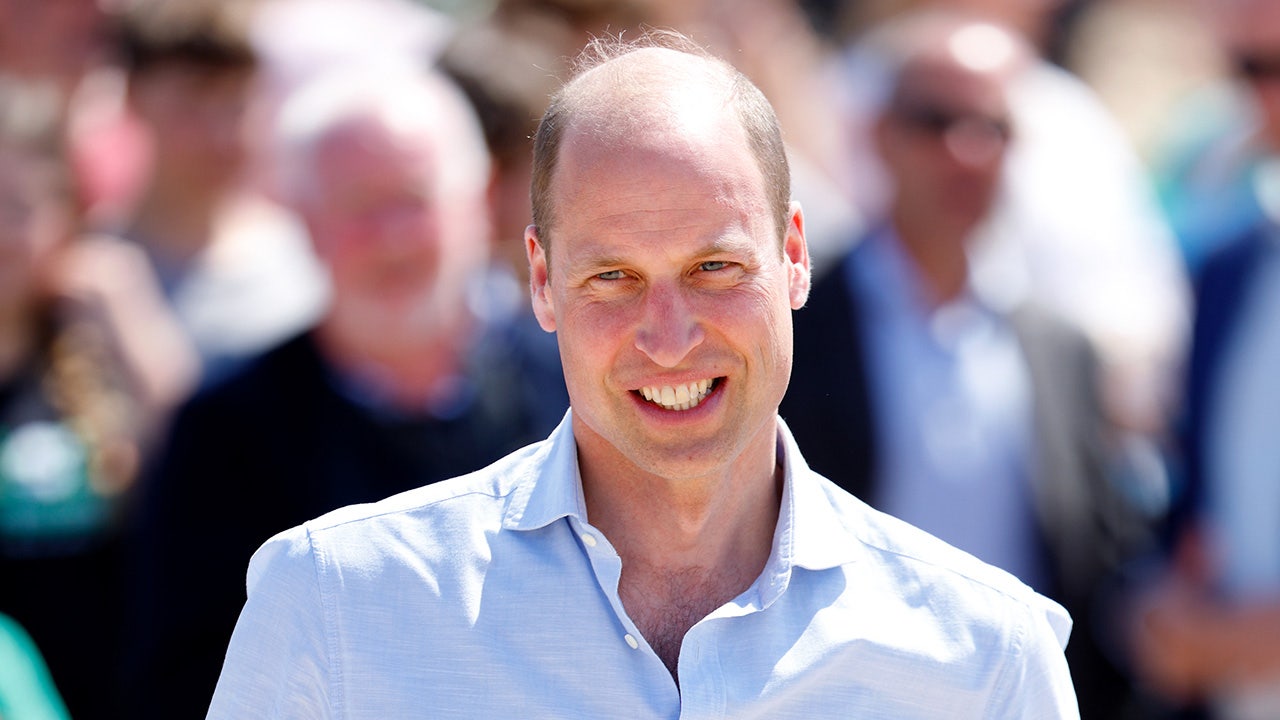Earlier this month, Gov. Gavin Newsom proposed new emergency restrictions on California’s hemp industry, citing an urgent need to protect children. His concern: a loosely regulated class of products that contain intoxicating levels of THC, the compound known to trigger cannabis’s psychoactive high.
While many agree that some changes are needed, several business owners and consumers are concerned that the governor's new rules are too strict and will hurt a nascent industry just as it is gaining traction.
Critics say the proposed regulations would effectively ban a wide range of tinctures, capsules, beverages and other popular products derived from industrial hemp, including those containing primarily CBD, a non-intoxicating cousin of THC.
These types of products, which range from soft CBD gummies for sleep to potent THC-laden beverages, are gaining in popularity. While they may have similar effects, these hemp-based products are different than those containing cannabis-derived THC sold in many licensed dispensaries.
Hemp products are widely available at liquor outlets, gas stations and tobacco shops, which the governor has cited as one of the main concerns motivating his action.
Newsom announced the state’s proposed emergency rules on Sept. 6, after a bill to regulate the hemp industry failed in the state legislature. The rules are still under administrative review; if enacted, it would be illegal for any “detectable” amount of THC to be present in hemp products.
The proposed rules also ban a list of about 30 “comparable” compounds known as cannabinoids, some of which are naturally occurring and others are synthetic chemicals that mimic the effects of THC, short for tetrahydrocannabinol.
Most hemp industry advocates acknowledge the need to change rules to ensure products are safe and available only to adults, but said Newsom has gone too far in taking a zero-tolerance approach.
Among those affected are Jacob and Lindsey Dunn, owners of Sow Eden Organics, which operates out of a small storefront in La Verne. They produce, package and ship a variety of industrial hemp-infused gummies and tinctures, which buyers consume to help them sleep better or find relief from pain, anxiety and other ailments.
When the Dunns, who have a 2-year-old son and another baby on the way, met a decade ago, Jacob was still working from his kitchen table, selling CBD capsules to medical dispensaries. They now have about $500,000 in annual gross sales, but Jacob said the new rules could potentially cut that total in half overnight because many of their products contain low doses of THC.
For example, each of Sow Eden's popular sleep gummies contains 2.5 milligrams of the compound. Many recreational cannabis products contain 5 to 10 milligrams or more each.
Jacob Dunn holds several Sow Eden soothing gummies.
(Gina Ferazzi/Los Angeles Times)
“This is a small, family-owned business,” Lindsey Dunn said Monday. “It’s hard to know if we can launch new products right now. … It’s a huge undertaking. It’s a huge expense.”
Newsom’s office and the state Department of Cannabis Control referred questions to the California Department of Public Health, which said the emergency rules were in response to “increasing health incidents linked to intoxicating hemp products, which state regulators have found being sold across the state.”
The agency said it had received “a growing number of complaints about illegal industrial hemp products and intoxicants in retail settings.”
If the state Office of Administrative Law approves the emergency rules, they will remain in effect for at least 180 days. The governor has said products that violate the rules will have to be pulled from shelves immediately after the changes are implemented.
Both cannabis and THC remain tightly controlled by federal law. But hemp — a lower-THC variant of the cannabis plant long used for commercial products like paper and rope — got a boost from the 2018 Farm Bill, which loosened federal restrictions.
Across the country, states are grappling with how best to manage the surge in interest in consumable products infused with hemp-derived THC.
Some states have embraced the trend. In Minnesota, one projection estimates that hemp beverages could eventually generate $200 million a year in sales. The state has enacted registration and testing requirements. A hemp beverage festival in Minneapolis in June allowed the public to sample dozens of brands. “No smoking,” the flyer said.
Advocates say this approach limits access to adults while allowing the industry to continue to grow and thrive.
In Missouri, a lawsuit helped push the state to overturn Gov. Mike Parson’s executive order regulating hemp products less than two months after it was announced. New Jersey’s new restrictions also face legal challenges.
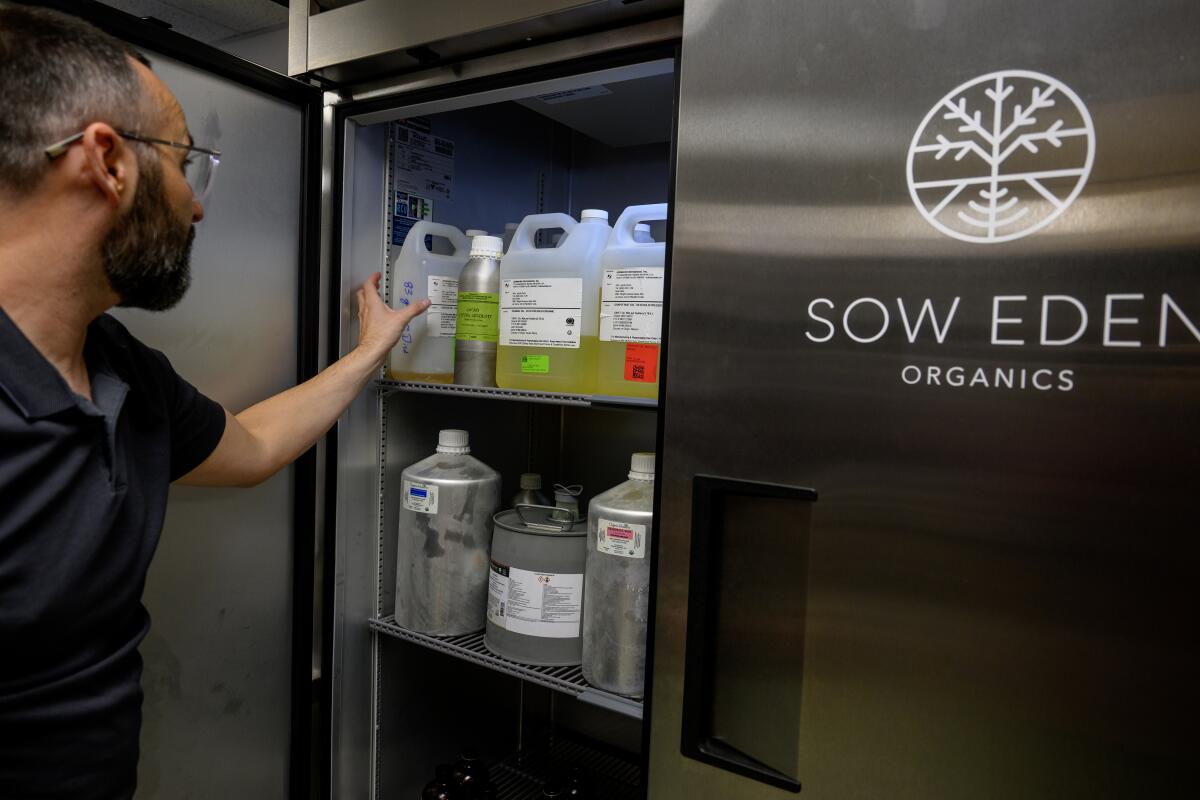
Jacob Dunn keeps Sow Eden's essential oils refrigerated. Dunn is concerned that Gov. Gavin Newsom's proposed new regulations for the hemp industry could cut his company's sales in half.
(Gina Ferazzi/Los Angeles Times)
Companies that produce hemp products say strict bans are misguided.
“It's catastrophic for a lot of people,” said Christopher Lackner, president of the Hemp Beverage Alliance, a Colorado-based trade group.
“Why does it have to be controversial?” he asked. “Regulate it, put it on the shelves next to beer or wine or carbonated water, age-test it and tax it like an adult beverage, regulate it like an adult beverage. And everybody wins.”
Ajay Narain, chief executive of Beacon Beverages, based in Campbell, near San Jose, said his company pivoted from alcoholic beverages to non-alcoholic cocktails infused with hemp-derived THC and CBD in February.
The business started slowly but gained momentum once Beacon's non-alcoholic lime margaritas and gin and tonics hit the shelves of major retailers like BevMo and Total Wine & More.
Now, Narain says he’s concerned that Newsom’s “absurd” new regulations will effectively “kill the industry” statewide.
“A lot of businesses are going to close,” Narain said. “It has simply taken the floor out from under their feet. And, again, it is completely unnecessary. It needs to be regulated, not eliminated.”
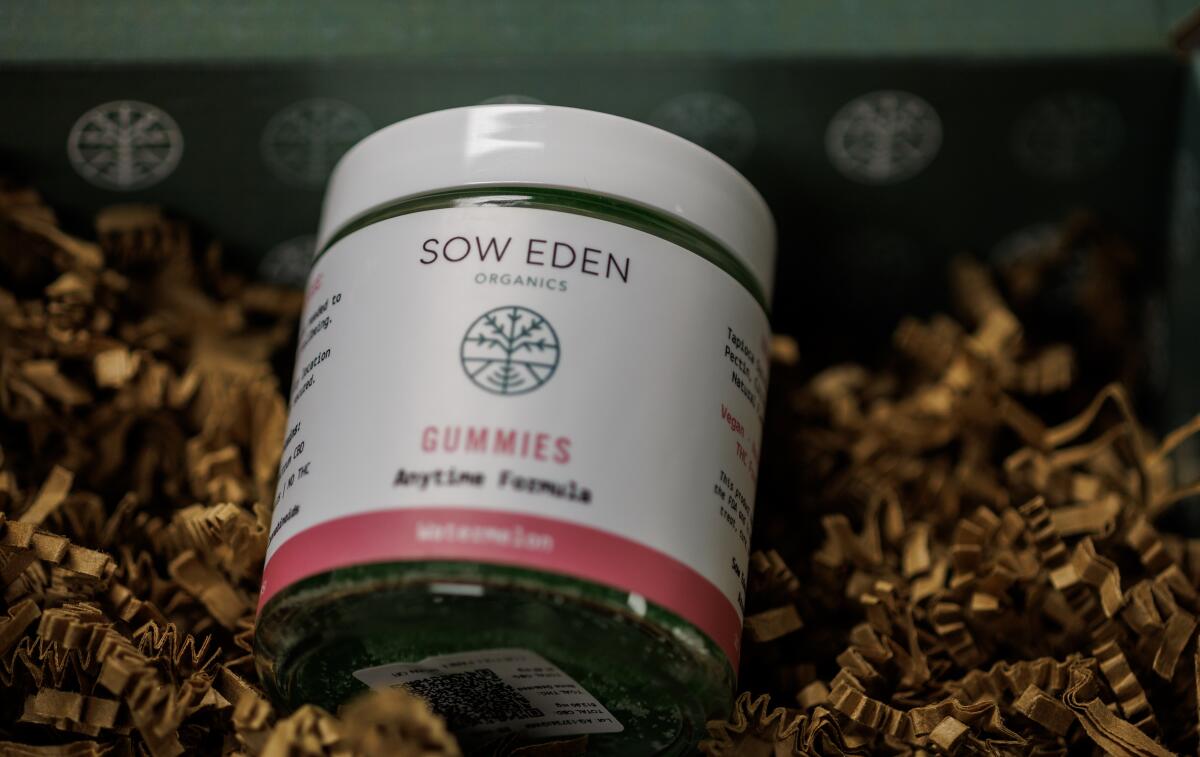
Nationwide, states are grappling with how to handle the growing interest in consumable products infused with hemp-derived THC.
(Gina Ferazzi/Los Angeles Times)
In 2021, Newsom passed a state law that limited the total concentration of THC in hemp-containing foods, beverages and cosmetics to 0.3% and defined how such products must be tested and labeled.
But Newsom and members of his administration have claimed that many businesses are exploiting “loopholes” that allow them to sell products with intoxicating levels of THC in places where minors have been able to purchase them.
On a Tuesday night in an aisle at a BevMo location in Torrance, a variety of flavored cans including lemon and lavender and a traditional cocktail were prominently displayed. Below each row of drinks were signs with the words “THC INFUSED” in large letters.
A study released this month by BDSA, a Colorado-based company that analyzes data from the cannabis and hemp industry, noted that the products have created “a lucrative niche that circumvents many of the challenges facing the regulated cannabis industry.”
“Unlike their cannabis counterparts, these products… can be produced, distributed and sold with minimal legal hurdles, making them a highly sought-after commodity,” the report said.
Some stakeholders, such as the California chapter of the National Organization for the Reform of Marijuana Laws, or Cal NORML, say Newsom is right to rein in sales at regular retail outlets.
But they denounce the harm the proposed regulations could cause to people with medical and mental health problems who benefit from non-intoxicating products that would also be illegal.
“We fully support the idea of keeping intoxicating hemp products off the retail market…but they are overstepping their boundaries. They are attacking these non-intoxicating hemp medicines, which have been widely used for years,” said Cal NORML Director Dale Gieringer.
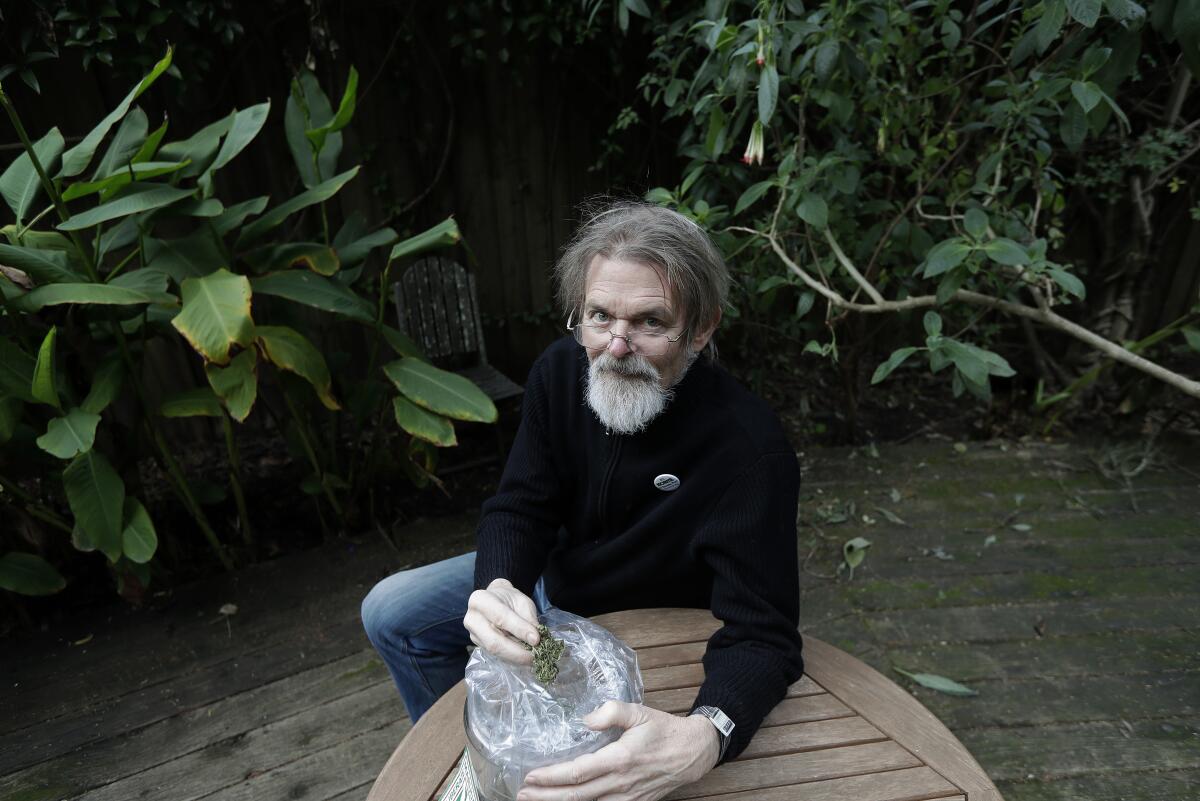
Cal NORML's Dale Gieringer says the proposed regulations could harm people with medical and mental health conditions who benefit from non-intoxicating products, “which have been widely used for years.”
(Jeff Chiu/Associated Press)
Ted Whitney, beverage director for Danville-based Cheech & Chong Global Holding Company (which sells recreational cannabis products as well as products containing intoxicating hemp), said that without the impending changes, hemp could be a nine-figure industry within a decade.
Whether the state can live up to that optimistic forecast remains to be seen. The recreational market, undermined by illegal dealers and stifled by high taxes and bureaucracy, has struggled compared with some states.
Whitney argued that hemp consumption is safer than other common products like tobacco and alcohol. The best way to keep children safe and grow the state's economy, he said, is to take a more measured approach.
“We can improve safety, we can improve regulation, we can improve revenue,” he said. “Let’s make this a win-win situation for everyone, rather than a lose-lose situation for everyone.”

